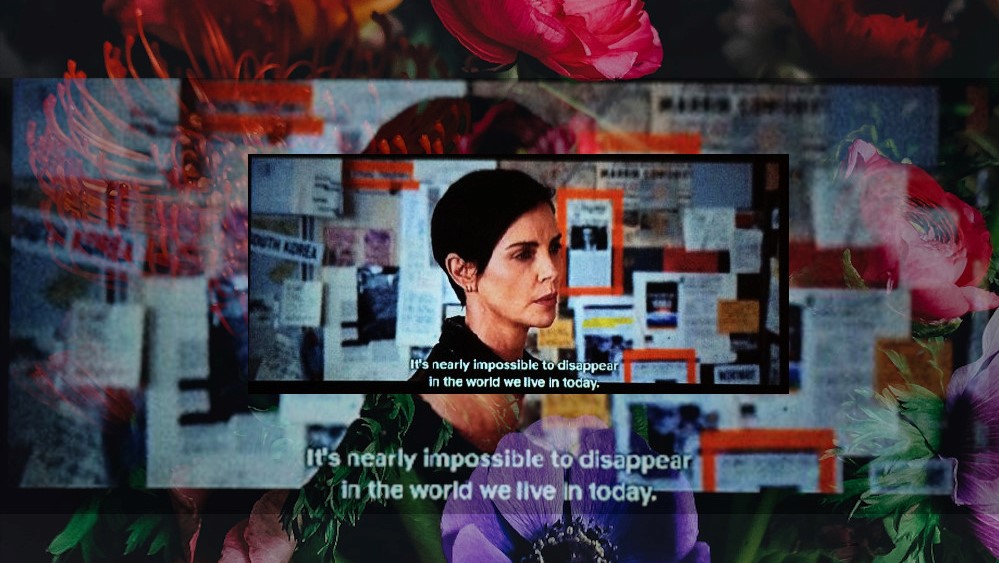Leia em português aqui.
The first Hollywood action movie directed by a black woman — Gina Prince-Bythewood — has come out this month, and it’s brilliant. By first, I mean — in a list of 222 directors, six are women. Five of which are white, two of which are the Wachowski sisters, and one of which is Vietnamese but not in Hollywood. It has taken us far too long to explore the action genre from a different lens. One that doesn’t center the narrative on remorseless men, whose interaction with women is rarely removed from grotesque objectification.
Perhaps we are finally entering an era where being in denial is no longer seen as a sign of strength, and being out of touch with your emotions is no longer a sign of courage (better late than never, right?). “The Old Guard” gives us some real action, incredible courage, and undeniable strength, showing how queerness not only embodies these qualities, but actually defines them in this day and age. There is true courage in professing your love for your same-sex partner in front of armed homophobes. And there is so much cowardliness in those who are uncomfortable with the sight of it.
Charlize Theron’s character transcends all boundaries of sexuality and gender identity. She manages to be both relatable and sexually attractive to pretty much anyone anywhere on both of these spectra. Andy, the protagonist, can be seen anywhere between male, female or non-binary, mostly because it doesn’t matter. What matters is that she is powerful, wise and sexy.
Andy, who rocks an oracle vibe, is wise beyond measures, but is also flawed, willing to grow and learn, knowing that weaknesses are nothing but a moment between strengths. These moments, and the way time passes in general throughout the movie, is impeccable. It can be slow without dragging, and fast without compromising detail. There is time for thought, angst and internal conflict. So much so, that not even a lone elevator ride has a chance to be boring. While in the climax of action, there is focus on wounds and pain, as opposed to the shaky and chaotic bloodbath we are used to getting from directors who resort to excess, grabbing our attention while hiding stunt doubles or other imperfections.
Without resorting to these expensive and shallow tricks, room is made for interesting philosophical questions. Such as not overlooking the “emotional cost of killing”, brought by KiKi Layne’s character. Gina Prince-Bythewood points out in an interview with NPR that she wanted to bring into the movie what she learned from the book On Killing, which shows that “the fear of taking a life is as psychologically damaging as the fear of losing your life.” Moreover, warfare has significantly changed throughout the ages, and firearms became a progressively smaller portion of the weapons used. In what way has everyday technology become weaponized, and what does anonymity mean in our era? How unique it is, in the history of humanity, to have these levels of detailed data stored on essentially everyone. But this will probably be explored more in depth later.
The most profound political message, which is only as profound as Hollywood can possibly go, is about how difficult it is to still have hope as the world seems to not be getting much better. There is still war, misery, violence, and, in particular — villains who are willing to do horrific things to people (and other animals) for the sake of profit; all under the pretext of it being for the “greater good. ” The message is clear: anyone can fall for these opportunistic tricks, and it comes with consequences.
That’s the frustration militants are all too familiar with, the feeling of swimming against the current. I say militant, not activist, because we all act even when we make no decisions. Not everyone chooses to join the fight on the ground, the constant struggle and not an occasional conversation. To the militant, the air they breathe and the ground beneath their feet are always vibrating the tune of a battle cry.
In this sense, making several of the characters army soldiers is coherent. According to Gina, women don’t grow up being incentivized to find their voice, and to tap into their aggression, strength and ambition; something she grew up with as an athlete and saw in other women athletes as well. Perhaps that didn’t have to be conveyed through the US Navy, but it was conveyed nevertheless.
It’s uncertain if a courageous black woman in the US Navy is an attempt to raise sympathy for the “Nation” and its institutionalized use of force, or to shift the white nationalistic paradigm towards respecting black people. I choose to assume the latter, even though neither would be very effective. White nationalists are the reason why this film industry has been dominated by white men, so their minds won’t be changed by this movie. And the BLM movement should be able to do what they want for as long as these white nationalists remain in power.
With this in mind, to what extent do these advances in main stream representation translate into substantial structural changes? The jury is probably still out on this one. In the meantime, you can be entertained by an action movie that isn’t despicable for once.
_______
text: Mirna Wabi-Sabi
